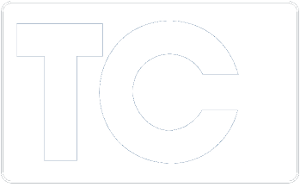Focus on Hospitality – How to Surpass Guest Expectations with Effective Communications
Enhance your guest experience, elevate staff performance, and stay ahead of the competition with the latest integrated communications technology. You and your guests can enjoy seamless service that is sure to impress.
Challenges You Might Be Facing
1. Reliability is not negotiable – Whether it’s a simple wake-up call or acting in a professional and efficient manner in an emergency, there’s no room for errors. Stability is an essential requirement for your communications platform to ensure guest satisfaction and increased positive ratings.
2. Universal device access – Both business and leisure travelers want to use their own devices and get the service they require immediately. From personal conversations and interactions with chatbots to voicemail and email, give your guests the power to choose when, where, and how they communicate with you.
3. Security threats on the rise – Ensuring guest privacy, maintaining data security, and integrating smart devices should be at the forefront of your IT priorities.
4. Profitability from productivity – As a manager, improving operational efficiency is a top priority. You must streamline processes, explore new communication methods, and enhance guest experiences to make your organization more effective and profitable.
5. Experience is everything – As customer expectations continue to evolve, it’s crucial to meet their demands across all channels and devices and provide the right experience. Failure to do so could negatively impact staff productivity and customer loyalty.
Questions You Should Ask
1. Is your communications technology stable? What level of support do you offer?
What measures do you have in place to ensure reliable and uninterrupted communication services? Can you provide details about any backup and redundancy mechanisms?
2. What experience do you have serving the hospitality industry?
How long have you been serving this industry? Who are your biggest clients?
3. Does your system integrate with smart devices and high-speed internet?
How can this help promote revenue-generating guest services? Can your solution help us provide personalized services for our guests?
4. How flexible is your solution when it comes to customization?
Do you offer secure third-party integration? Which applications and platforms do you provide full integration with?
5. Can you manage multi-site, multi-location, and multi-national hospitality businesses?
Is your system compatible with multiple brands and languages? Can it scale if we expand our business in the future?
How the Right Communications Drive Results
- Influence online ratings – By utilizing your communications technology, you become more proactive in addressing guest and maintenance concerns. This results in improved staff productivity and higher customer ratings, ultimately leading to better online reviews.
- Improve guest experiences – Adopt multi-channel engagement to ensure your guests interact with your organization directly through personal devices, including mobile check-in, text, and chat.
- Cut your costs – Unifying communications into a single service solution means automated efficiencies, smoother workflows, integrated apps, budget-friendly fees, and reduced operating costs.
- Connect your staff – Connecting staff creates a seamless guest experience. Streamlining experiences means issues are resolved quickly and efficiently, ensuring superior service is provided every time.
- Ensure data security and system reliability – Look for a partner with a strong track record of industry clients and a reputation for secure and stable networks.
Seamless communication lies at the heart of exceptional hospitality.
Find your perfect-fit solution with the help of TCI. Contact us today at (703) 321-3030 or GetHelp@tcicomm.com.

